Isn't it great that art exhibitions are not generally rated on some number or star system- whether 1 to 5, 1 to 10 or the classic 100 point scale we all remember from school. Imagine if your show only scored "three paintbrushes" in Artforum. There's a great line from Lou Reed on Take No Prisoners that goes something like, "imagine working for a year on an album and some asshole from the Village Voice gives you a B+."
Ratings play a big part in my day job working in the wine world. Everyone wants that 90 point wine that only costs $10. I have this "terrible" job that requires me taste well over a thousand wines a year and yes, I give each one a score. Every wine writer will tell you that a score is just a guide and you need to read the actual review to get a better feeling about whether or not the wine is a good choice for you. Since my scores are not published and are only used either as part of a group analysis to determine what wines we should carry or for my own reference, I tend to be somewhat generous on nice pleasant wines, giving 90 points to wines that I know most writes would score 86-88 points. The longer I've been at the wine game, I have also stopped giving an absolute score. I prefer to say a wine is 88-90 points or 91-92. The publications want a more absolute view of quality so a delicious wine will lose points because its not very complex or the finish isn't long enough. I tend to score wines that I want to buy and drink a little higher simply because I like them. I am much more stingy in scoring wines over 90 points. These are more expensive wines so if I continue to consider if I would want to buy and drink the wine, its going to need to deliver exponentially more to score higher. The big question I get when I'm out in our stores helping customers is what is the difference between an 89 point wine and a 90 point wine. The answer is maybe a lot or maybe very little. Its one opinion from one sip on a random day.
I've been a music junkie since my early teens and have always rated albums for myself. Rolling Stone and other publications typically use a 5 star system but I find that scale a little limiting so I use my own 11 point system that allows half point increments. Pitchfork has a 10 point system but allows for tenth of a point increments such as 8.3. Isn't that really an 83 out of 100. My 11 point system is really a 10 point systems where you substitute an 11 for a 10. As with Nigel's amp in Spinal Tap, for me, these albums have that extra kick. There are only a handful of albums that I would give an 11: Kind of Blue (Miles Davis), Highway 61 Revisited (Dylan), In C (Terry Riley), Another Green World (Brian Eno), 3rd (Peter Gabriel), Remain in Light (Talking Heads), Kid A (Radiohead), Music for Airports (the Bang on a Can version of the Brian Eno piece). These albums are all perfect for me. Not a bad song or even part of a song. I can't imagine anything to make them better. There are hundreds of awesome albums that I would only give 9.5 because there is something that bugs me just a little. Something that I would change if I could. This is why I use that half point increment.
I've been deep diving into Brian Eno lately and started thinking if there is a better way to rate albums. I find initial impressions often change over time. Perhaps frequency of listening (rotations) is a better way to rate. I listen to Thursday Afternoon way more than I do Taking Tiger Mountain by Strategy, but is it better? There are tons of great albums like Neil Young's Tonight's the Night or Soft Machine's 3rd that I may not listen to very often at all for particular reasons.
I'm a bit of a cataloger and since these ratings are for myself, I guess it only matters if I know what the ratings mean.
Ratings play a big part in my day job working in the wine world. Everyone wants that 90 point wine that only costs $10. I have this "terrible" job that requires me taste well over a thousand wines a year and yes, I give each one a score. Every wine writer will tell you that a score is just a guide and you need to read the actual review to get a better feeling about whether or not the wine is a good choice for you. Since my scores are not published and are only used either as part of a group analysis to determine what wines we should carry or for my own reference, I tend to be somewhat generous on nice pleasant wines, giving 90 points to wines that I know most writes would score 86-88 points. The longer I've been at the wine game, I have also stopped giving an absolute score. I prefer to say a wine is 88-90 points or 91-92. The publications want a more absolute view of quality so a delicious wine will lose points because its not very complex or the finish isn't long enough. I tend to score wines that I want to buy and drink a little higher simply because I like them. I am much more stingy in scoring wines over 90 points. These are more expensive wines so if I continue to consider if I would want to buy and drink the wine, its going to need to deliver exponentially more to score higher. The big question I get when I'm out in our stores helping customers is what is the difference between an 89 point wine and a 90 point wine. The answer is maybe a lot or maybe very little. Its one opinion from one sip on a random day.
I've been a music junkie since my early teens and have always rated albums for myself. Rolling Stone and other publications typically use a 5 star system but I find that scale a little limiting so I use my own 11 point system that allows half point increments. Pitchfork has a 10 point system but allows for tenth of a point increments such as 8.3. Isn't that really an 83 out of 100. My 11 point system is really a 10 point systems where you substitute an 11 for a 10. As with Nigel's amp in Spinal Tap, for me, these albums have that extra kick. There are only a handful of albums that I would give an 11: Kind of Blue (Miles Davis), Highway 61 Revisited (Dylan), In C (Terry Riley), Another Green World (Brian Eno), 3rd (Peter Gabriel), Remain in Light (Talking Heads), Kid A (Radiohead), Music for Airports (the Bang on a Can version of the Brian Eno piece). These albums are all perfect for me. Not a bad song or even part of a song. I can't imagine anything to make them better. There are hundreds of awesome albums that I would only give 9.5 because there is something that bugs me just a little. Something that I would change if I could. This is why I use that half point increment.
I've been deep diving into Brian Eno lately and started thinking if there is a better way to rate albums. I find initial impressions often change over time. Perhaps frequency of listening (rotations) is a better way to rate. I listen to Thursday Afternoon way more than I do Taking Tiger Mountain by Strategy, but is it better? There are tons of great albums like Neil Young's Tonight's the Night or Soft Machine's 3rd that I may not listen to very often at all for particular reasons.
I'm a bit of a cataloger and since these ratings are for myself, I guess it only matters if I know what the ratings mean.
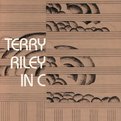
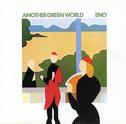
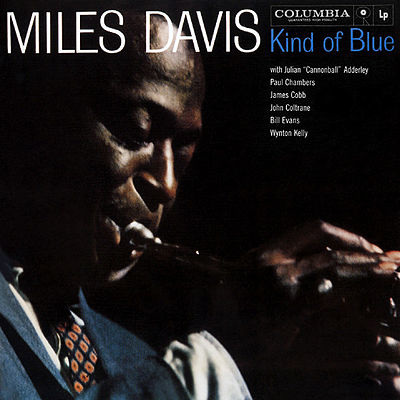
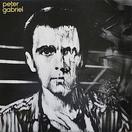
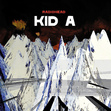
 RSS Feed
RSS Feed
